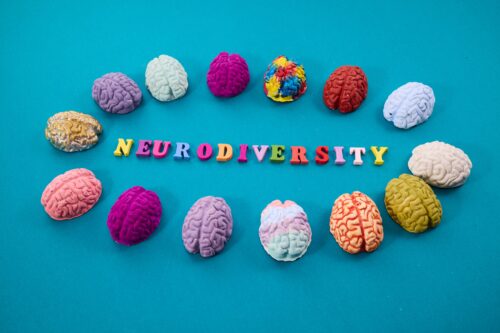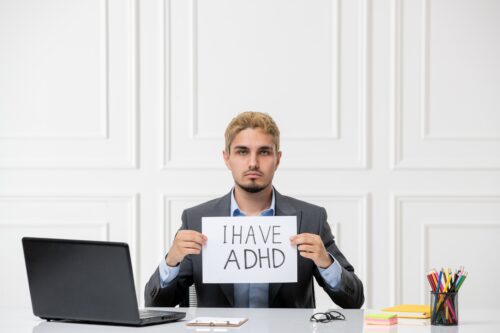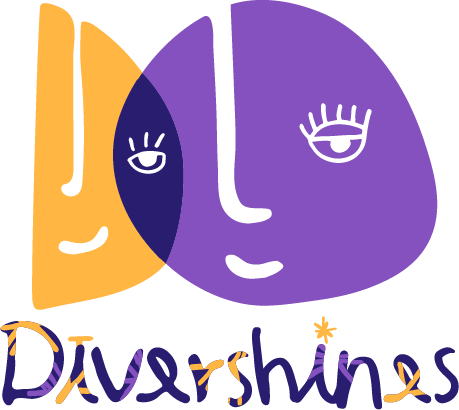Am I Neurodivergent? How to Know and What to Do Next

Have you ever wondered, “Am I neurodivergent?” Perhaps you process information differently, struggle with certain tasks, or feel out of sync with social norms. Neurodivergence includes conditions such as autism, ADHD, dyslexia, and other cognitive differences — but how do you know if it applies to you?
In this guide, we’ll break down the signs of neurodivergence, how to assess if you might be neurodivergent, and what steps to take next. Whether you’re seeking clarity for yourself or someone you love, this article will help you understand neurodivergence and how to embrace it.
What Does It Mean to Be Neurodivergent?
Neurodivergence means having a brain that functions differently from what is considered typical. Some people process information, communicate, or experience the world in unique ways. Those who fit expected cognitive patterns are called neurotypical.
Neurodivergence is not a disorder. It’s a broad term that covers many conditions, including:
- Autism Spectrum (ASD)
- Attention Deficit Hyperactivity (ADHD)
- Dyslexia, Dyspraxia, and other learning differences
- Tourette Syndrome
Many neurodivergent individuals thrive when given the right tools and support. Recognizing your differences can be the first step toward living authentically.
Common Signs and Characteristics of Neurodivergence
Neurodivergence can affect thinking, learning, emotions, and behavior. Here are some common characteristics:
1- Differences in Thinking and Learning
*Struggles with traditional learning methods (e.g., reading, writing, or math)
*Deep focus on interests or difficulty maintaining attention
*Unique problem-solving skills and creativity
2- Sensory Sensitivities
*Easily overwhelmed by bright lights, loud noises, or certain textures
*Increased or reduced sensitivity to pain and temperature
3- Social and Emotional Differences
*Difficulty understanding facial expressions, tone of voice, or social cues
*Feeling different or misunderstood in conversations
*Strong emotional reactions or difficulty regulating emotions
4- Repetitive Behaviors and Routines
*Engaging in repetitive movements like rocking or tapping
*Strong need for structure and routine
*Struggles with unexpected changes
Not all people with these traits are neurodivergent. However, if several apply to you, it may be worth exploring further.

How to Discover If You’re Neurodivergent
1.- Self-Reflection and Awareness
Start by asking yourself:
- Do I process information differently from others?
- Have I struggled in school or work despite being intelligent?
- Do I experience sensory sensitivities?
- Have I always felt out of sync with social norms?
If you identify with multiple questions, exploring neurodivergence further may be beneficial.
2.- Taking Online Self-Assessments (With Caution!)
Many websites offer neurodivergence tests. These can provide insight but are not a diagnosis. Use them as a tool for self-reflection, not as a final answer — only a professional can provide a definitive diagnosis.
3.- Seeking a Professional Diagnosis
A healthcare professional can provide a comprehensive evaluation. This process may include:
- Clinical interviews to discuss symptoms and history
- Standardized assessments for cognitive processing
- Behavioral observations to identify patterns
A diagnosis can help you access accommodation and support. It can also provide clarity on how your brain functions.

What to Do Next: Embracing Neurodivergence
1.- Understand That Neurodivergence Is Not a Defect
Many neurodivergent people have incredible strengths:
- Creativity and problem-solving skills
- Strong focus on passions
- Unique ways of thinking that lead to innovation
Society often highlights challenges rather than strengths. However, being neurodivergent is simply a different way of experiencing the world.
2.- Find Support and Community
- Join neurodivergent groups (online forums, support networks)
- Connect with people who understand your experiences
- Seek professional guidance for personal growth and confidence
3.- Make Lifestyle Adjustments
- Sensory-friendly spaces: Use noise-canceling headphones or soft lighting
- Workplace or school accommodations: Request adjustments for productivity
- Executive function tools: Use planners, reminders, or time-management apps
Living as a neurodivergent person is easier when you understand and advocate for your needs.
Final Thoughts: Embracing Your Neurodivergent Identity
If you’ve been wondering, “Am I neurodivergent?” you’re already on the path to greater self-awareness. Understanding how your brain works — whether through self-reflection, assessments, or a professional diagnosis — can change your life.
Being neurodivergent is not a defect or something that needs fixing. It’s a different way of thinking, learning, and interacting with the world. By recognizing your strengths, seeking support, and making adjustments that suit your needs, you can thrive in your own way.
Next Steps:
- Continue learning about neurodivergence and how it applies to you.
- Seek a professional evaluation if you want clearer understanding.
- Connect with communities and support resources.
- Embrace your unique strengths and advocate for your needs.
You don’t have to fit into a neurotypical world — you can create a space where you thrive. Your differences are valuable, and the more you understand them, the more confidently you can navigate life.
Want to Learn More? Read: Can Autism Be Cured? — Discover Why Neurodivergence Is Not Something to “Fix” but to Embrace.
Do you relate to this topic? Share your thoughts in the comments below! And if you found this article helpful, consider sharing it with others who might benefit.
Frequently asqued questions
Not necessarily. While concentration and learning difficulties can be signs of neurodivergence (like ADHD or dyslexia), they can also result from other factors such as stress or lack of sleep. A professional evaluation can help determine if neurodivergence is the cause.
Yes. Neurodivergence is a broad term that describes cognitive differences, not a specific medical diagnosis. Many people identify as neurodivergent based on their experiences, even without an official diagnosis. However, it’s always advisable to consult a healthcare professional.
It depends on the individual. Some neurodivergent people face challenges that qualify as disabilities, especially in environments that do not accommodate their needs. However, many also view their neurodivergence as a strength rather than a limitation.
Start by reflecting on common neurodivergent traits, taking online assessments, and seeking a professional evaluation from a psychologist or neuropsychologist.
Neurodivergent individuals often have exceptional creativity, unique problem-solving skills, deep focus, and innovative thinking. Many excel in specialized fields and contribute valuable perspectives to society.
No. Neurodivergence is not an illness — it’s a natural variation in how the brain works. Rather than focusing on “curing” it, the goal is to understand, accept, and support neurodivergent individuals.
tart by learning more about neurodivergence, reflecting on your experiences, and seeking support. If you want clarity, consider speaking with a professional for an evaluation. Connecting with neurodivergent communities can also be helpful.
References
- A Place of Hope. What is Neurodivergence, and How Do I Know If I Am Neurodivergent? 12 de diciembre de 2024. Disponible en: https://www.aplaceofhope.com/what-is-neurodivergence-and-how-do-i-know-if-i-am-neurodivergent
- Harvard Health Publishing. What is Neurodiversity? 23 de noviembre de 2021. Disponible en: https://www.health.harvard.edu/blog/what-is-neurodiversity-202111232645
- Psych Central. Neurodivergent Test: Do I Think Differently? Disponible en: https://psychcentral.com/quizzes/neurodivergent-test
- Chicagoland Neuropsychology. How Do I Know If I Am Neurodivergent? 12 de junio de 2024. Disponible en: https://chicagolandneuropsychology.com/blog/how-do-i-know-if-i-am-neurodivergent
- Bristol University Press Digital. Neurodiversity: Theory, Research, and Practice. Disponible en: https://bristoluniversitypressdigital.com/display/book/9781447314592/ch016.xml


